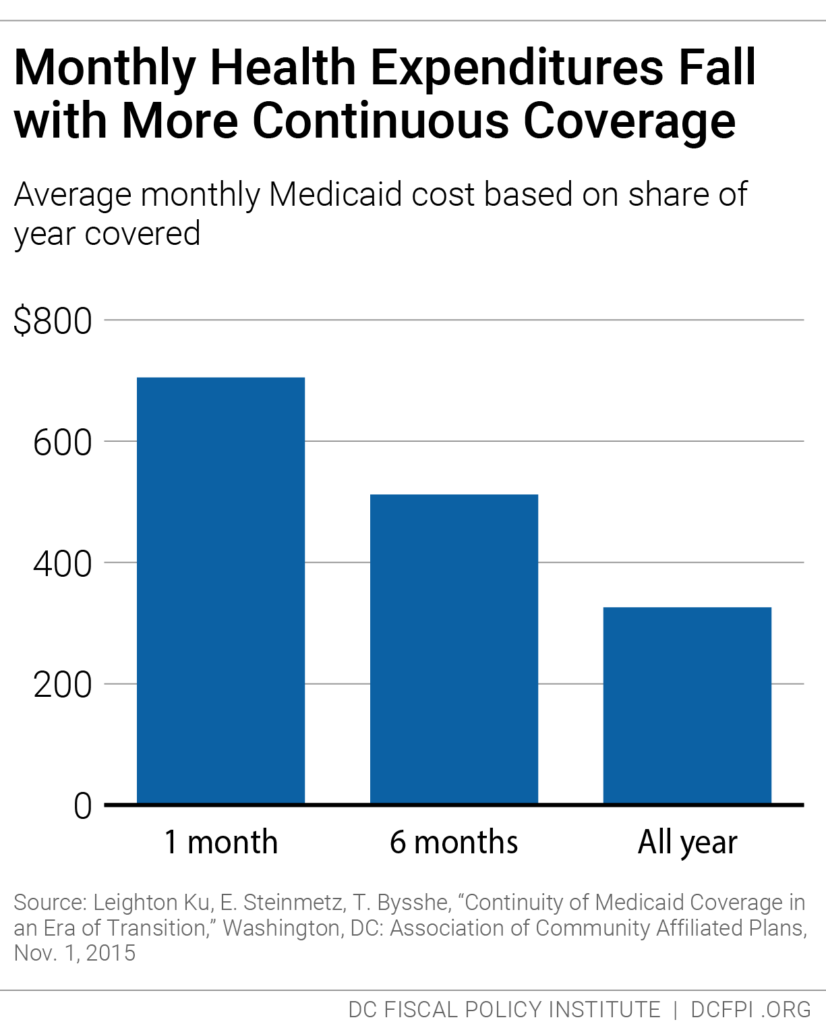DC imposes barriers to accessing health care through the DC Healthcare Alliance—a program for low-income residents that primarily serves immigrants—contributing to both poor health outcomes and unnecessarily high program costs, according to a new analysis by the DC Fiscal Policy Institute. Removing those barriers is important to ensuring access to health care for all DC residents—and to making the Healthcare Alliance a more effective program.
The Alliance suffers from a very high rate of turnover, or “churn.” Data from the District’s Department of Health Care Finance show that only 55 percent of Alliance participants renew their eligibility when it comes up. This means that many Alliance participants have only intermittent health coverage.

The reason for this high rate of churn is not a mystery. It reflects a requirement since 2011 that Alliance participants have to visit a DC social service center every six months to maintain their eligibility, instead of the annual recertification most DC benefit programs have. Research confirms that short recertification periods lead to a high rate of churn. Given that many Alliance members are working at jobs without paid leave and that visiting a social service center can take an entire day or longer, it’s not surprising that many do not renew their benefits. Imagine having to visit the DMV in person every six months to keep a driver’s license.
Churn from frequent recertification increases health program costs because it limits access to preventive care, which means participants often are sicker when they re-enroll, and because sicker residents are most willing to go through the process of maintaining coverage. Healthcare Alliance costs have doubled in the past four years, even though participation has not grown. The cost increases also appear to reflect other factors, including a growing number of older participants.
Replacing the six-month in-person Alliance requirement with a one-year recertification requirement would improve health outcomes for DC’s immigrants and reduce monthly per-person program costs as residents receive better care and as healthier residents, currently discouraged from staying on, are able to maintain coverage. Research from Medicaid, for example, shows that average health care costs go down the longer participants have coverage (Figure 1).
The DC Council has adopted legislation to replace the six-month requirement, but it hasn’t gone into effect because the Mayor and Council have not provided the funding needed to serve the thousands of additional residents expected to receive coverage.
The upcoming fiscal year (FY) 2020 budget gives Mayor Bowser and the DC Council an opportunity to make the Alliance a more effective health care program—and to improve health outcomes for DC’s immigrants. DC has been a leader in expanding health insurance coverage to improve resident health and reduce health disparities. Eliminating barriers to care is a critical component of those important city goals and would go a long way towards affirming support for our immigrant neighbors.
Read the full report, No Way to Run a Healthcare Program: DC’s Access Barriers for Immigrants Contribute to Poor Outcomes and Higher Costs, here.
Learn more about DCFPI’s FY 2020 budget priorities here.
